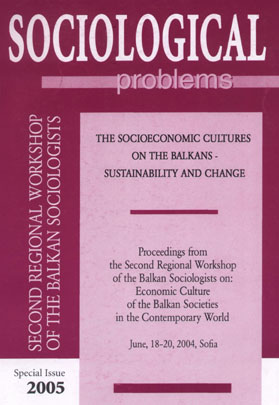Social Interpretative Patterns of Entrepreneurs in Transition Economy
Social Interpretative Patterns of Entrepreneurs in Transition Economy
Author(s): Rumiana JelevaSubject(s): Social Sciences
Published by: Институт по философия и социология при БАН
Summary/Abstract: This paper focuses on the social type of entrepreneur who enters as a new and basic economic actor into Bulgaria during its period of transition towards a market economy. This analysis is an attempt to contribute to the highlighting of the entrepreneurial culture in the post-socialist period. The objective is to study the social interpretative patterns that help the Bulgarian entrepreneurs establish themselves in the process of transition. This is done by showing the changes in the institutional and cultural context of the Bulgarian economy from a “bottom-up” perspective. The current analysis is based on empirical material from seventeen field interviews with entrepreneurs in Bulgaria. The first part of the paper introduces entrepreneurial self-understanding. After presenting the entrepreneurs in their company and social context, the second part of the paper focuses primarily on two social interpretative models, which are characteristic of entrepreneurial behavior throughout the transition period. The basis of the analysis in this particular case is the theoretical and methodological concept of Ulrich Oevermann (1973) which deals with social interpretative patterns („Deutungsmuster”).
Journal: Социологически проблеми
- Issue Year: 37/2005
- Issue No: Special
- Page Range: 49-61
- Page Count: 13
- Language: English
- Content File-PDF

